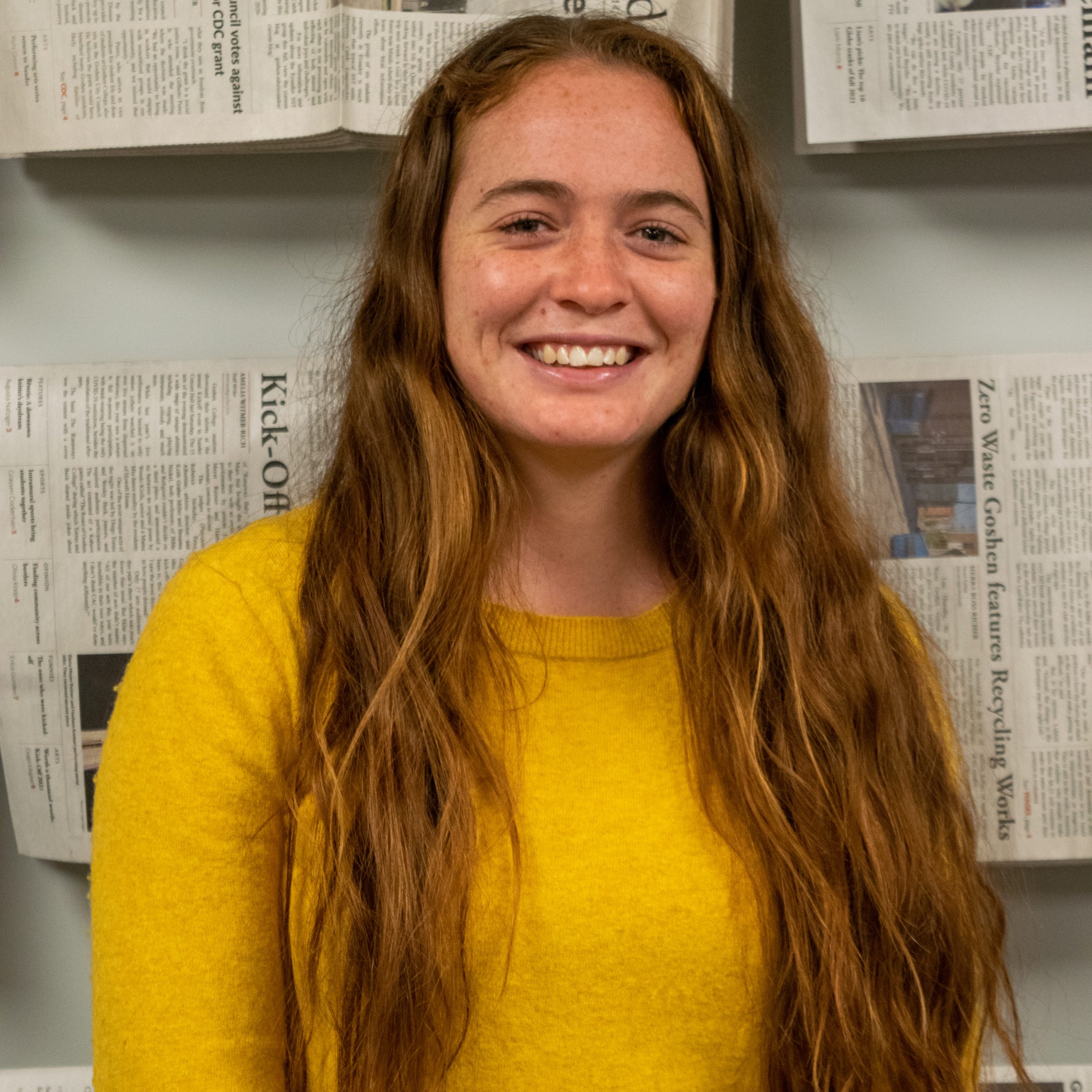With graduation two weeks away, I am down to the final boxes on my checklist: one more speech to perform, one more issue of The Record to publish (this one!), one more May Term course to complete. My days in Goshen feel — suddenly — very numbered.
To process this realization, a few days ago, I did what I often do when I need some time to think: I walked down the millrace to the Larry Beachy Classified Forest.I scrambled over logs on a path I’ve walked more times than I can remember in the 14 years I’ve called Goshen home. As I passed familiar landmarks, memories began coming to me.
One grove of trees reminded me of finding my first chicken of the woods mushroom protruding like an orange shelf from a tree trunk a few steps off the path.
A couple minutes later, a small prairie on my right brought the memory of the sweet scent that led me to a wild mint plant amid the grasses. And another patch of forest farther on reminded me of harvesting baby garlic mustard leaves for spring pesto.
Each place I passed through held memories that were unlocked when I reached them: The spot where I let mosquitoes bite me for 20 minutes as a gift to nature, the place I made the decision to quit athletics, the pond where my sister and I took our boyfriends on Valentine’s Day.
I need the woods to remind me of these experiences. That’s because physical space is critical to the way our brains remember things. It’s so important, in fact, that physical (or imagined) space can be used to aid in memorization.
In the book “Wanderlust,” Rebecca Solnit explains that orators in ancient Greece memorized their speaking points by placing them throughout an imagined physical space — often a building — which they could tour in their minds throughout the speech.
The ancient Greeks weren’t the only ones to understand the relationship between physical space and memory.
According to Sarah Augustine in the book “The Land is Not Empty,” many Indigenous Peoples remember stories based on where they took place, not when. This is one reason why the land is so important to Indigenous Peoples, and it is why the degradation and development of land is so painful.
The loss of traditional land means the loss of the stories, history and knowledge that it holds.
When I leave Goshen in a few weeks to find new places to call home, I will be leaving pieces of my story on the trails of the Beachy woods.
I trust the woods to hold these stories — these parts of me — just like it holds the stories of so many others.
I hope that I can trust the people of Goshen to protect the forest that holds my stories, to ensure that they will be here when I return.




